Age Funny Body Thinks It Died Last Tuesday
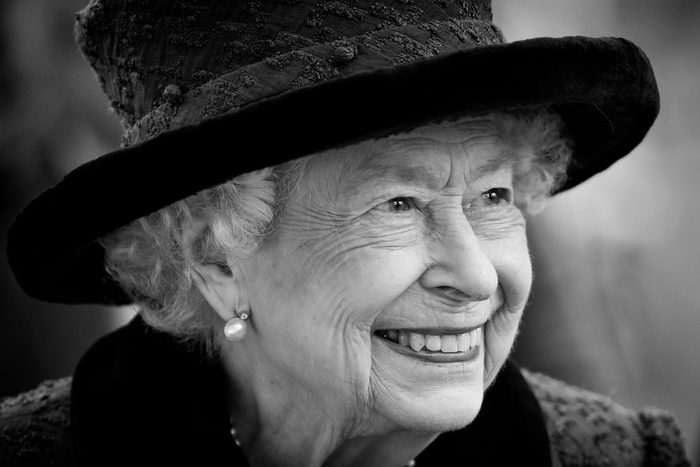
Long live the queen
Queen Elizabeth II has been around for almost everybody's lifetime. At 95 years old, she is the longest-reigning British monarch ever. She took the throne at the age of 25 in 1952, and as of February 6, 2022, she has reigned for 70 years. Understandably, it's hard to imagine what happens when the queen passes away. While her father died at the young age of 56, her mother lived to the ripe old age of 101, so longevity is in her blood.
Make no mistake, though: Although her engagements have been more limited of late as her heir, Prince Charles, takes on more responsibility, there's little reason to believe the rumors about Queen Elizabeth stepping down. Despite her stint in the hospital in the fall of 2021, Prince Charles says his mother's health is good—for now. "She's alright, thank you very much. Once you get to 95, it's not quite as easy as it used to be," he told Sky News in December 2021, adding, "It's bad enough at 73," in reference to his own age.
If you're wondering whether Prince Charles will be King, the answer is, yes—eventually. And then the line of succession for future generations will follow the royal family tree. As is the English way, there are careful plans for Queen Elizabeth's passing to assure that the situation is handled gracefully, respectfully, and full of the pomp and ceremony the queen deserves.

Operation "London Bridge" will go into effect
The plan following Queen Elizabeth's death, according to multiple reports, is code-named "London Bridge"—although it's not such a secret anymore. "Details of it were leaked to the press, so we know almost exactly what the protocols are likely to be," says Nicoletta Gullace, an associate professor of history at the University of New Hampshire specializing in modern British history.
"Behind the scenes, events will unfold with the clockwork precision of a military operation," she says. It's crucial that the chain of communication is followed exactly as planned to control the dissemination of information throughout first the British government, and then the world. A similar protocol was followed when Prince Philip, the queen's husband, died in April 2021.
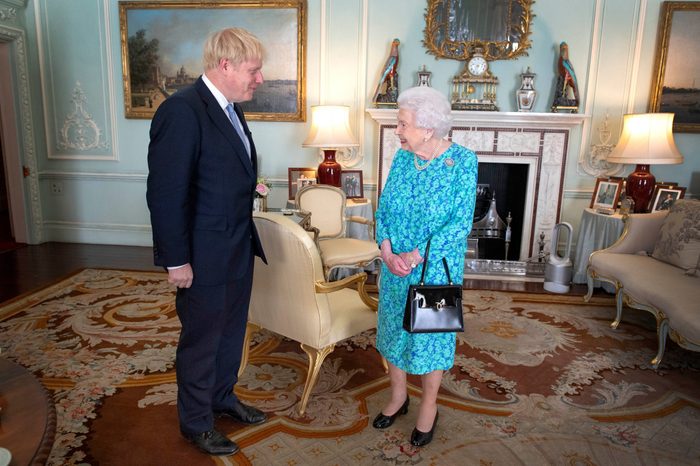
Code words will be spoken
"Upon Her Majesty's death, a number of strict measures will swiftly come into operation," says Gavin Hughes, director of the Irish Conflict Archaeology Network at the Centre for Medieval & Renaissance Studies at Trinity College Dublin. "The queen's private secretary directly informs the prime minister and the privy council office, which liaises between the monarch and the government." Gullace says the queen's private secretary will use the code words, "London Bridge is down," despite the phrase no longer being one of the biggest mysteries surrounding the royal family.
Then, Hughes says, the prime minister will host urgent calls with the cabinet secretary, the most senior civil servant, and the senior cabinet. The Foreign Office will inform the 15 governments where the queen is head of state and the 39 nations in the rest of the Commonwealth, an association of independent former colonies where she remains a symbolic figurehead, to let them know the sad news, Gullace says.

People will find out in ways both modern and ancient
Once all the really important people know, everyone else across the United Kingdom and the world will find out—you'll probably remember for the rest of your life where you were when you heard the news. All press outlets will be informed at once. "The Palace will send a press release to the media, and regular programming will be interrupted to read the announcement," Gullace says. At the same exact moment the press is informed, "a notice will be placed on the gates of Buckingham Palace, and the royal staff will don black armbands as a symbol of mourning," Gullace says.
Such a notice was also placed when Prince Philip died in 2021. Also at the same time, the royal family's official website will show the announcement on its homepage. All of this needs to fall into place precisely so that no false information gets out—as happened in recent years when a BBC staffer mistakenly tweeted that the queen had died after an obituary rehearsal (yes, the press practices these things).
At the same time the press and public are notified, "the queen's social media will go black," says Gullace. There are plans to change the royal family's website to a black screen with a short message regarding the queen's death, according to The Guardian. Other royal family social media will likely follow suit. The gov.uk website, along with all other social media pages from the government, will portray a black banner. New content will not be published unless it is urgent, and retweets as a whole will be banned unless they are approved by the government's head of communications.
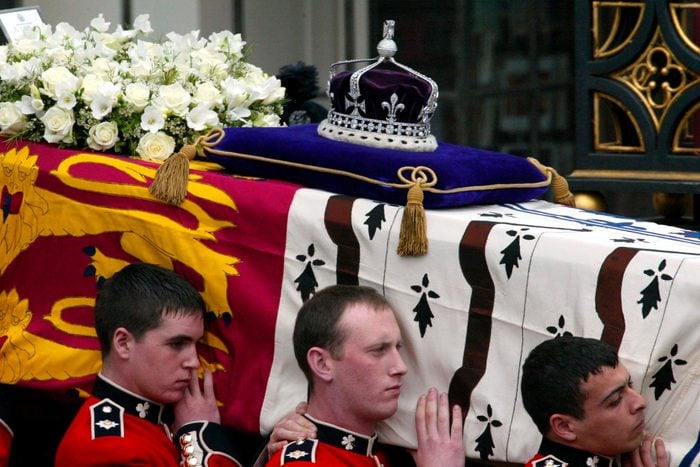
The press have their own plans in place
Most major outlets—including the British tabloids—have obituaries and news stories ready to go for public figures who are getting up there in years. As morbid as it sounds, it makes sense to be prepared for what happens when the queen dies—and coverage of Queen Elizabeth's death is even more important for the British press to get right. One BBC newscaster who wasn't properly dressed at the time of the Queen Mother's death in 2002 was reportedly criticized for wearing a maroon tie instead of black; now, they keep black ties and suits on hand. "Presenters or broadcasters on television will be required to dress appropriately for a modern period of mourning," Hughes says. "In some cases, they may opt for the traditional—if slightly archaic nowadays—wearing of a black diamond or square on the jacket sleeve."
If you're in the UK, don't expect your favorite sitcom to air on the night of the queen's death—reports say the BBC will pull comedy programming out of respect. "After [the initial announcement], we can expect wall-to-wall news coverage of the queen's life and legacy," Gullace says. Royal experts have already been lined up with news stations to go live on TV. In addition, "all major radio and television broadcast services will be in full mourning, meaning that only solemn music shall be played, and/or special commemorative programs or discussions aired," Hughes says. This will be one of the times that the royal family's sometimes contentious, sometimes brutally honest relationship with the press will be put aside. In the United States, we may expect a bit less of a to-do, but not by much, as the queen is well-loved in this former colony of Great Britain.

There will be an outpouring of grief
It's possible we could see a huge display of grief from the normally stiff-upper-lipped British people to rival even the emotion after Princess Diana's death in 1997. After all, most people never knew a time when Queen Elizabethwasn't queen, and can't even fathom what happens when the queen dies. "The death of the monarch who has reigned for the entirety of most Britons' lives, and for as long as nearly everyone can remember, will be a moment of tremendous grief, unmooring people from Britain's past and from all they have ever known," Gullace says. "We must expect it to be overwhelming, and I think we are likely to see a tremendous emotional outpouring from a traditionally stoic people."
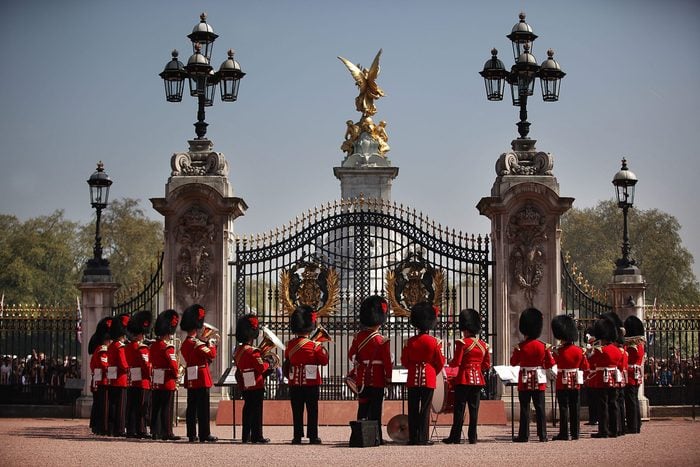
London could get crowded
According to documents obtained by Politico, there is concern that the number of people who will come to London to mourn Queen Elizabeth, which could number into the hundreds of thousands, could present a logistical nightmare for the city. It's possible the mourners will overwhelm the transportation systems, the hospitality industry, basic services, and even policing and crowd control. Then there is the issue of the ongoing Covid-19 pandemic: After Prince Philip's 2021 death, Buckingham Palace requested that the public not gather outside the royal residences to leave tributes because of the pandemic, but some did anyway. Plus, it's hard to imagine people not gathering after the queen's death. "Mourners will pour into the area in front of Buckingham Palace, likely leaving notes, mementos, and bouquets of flowers," Gullace predicts.
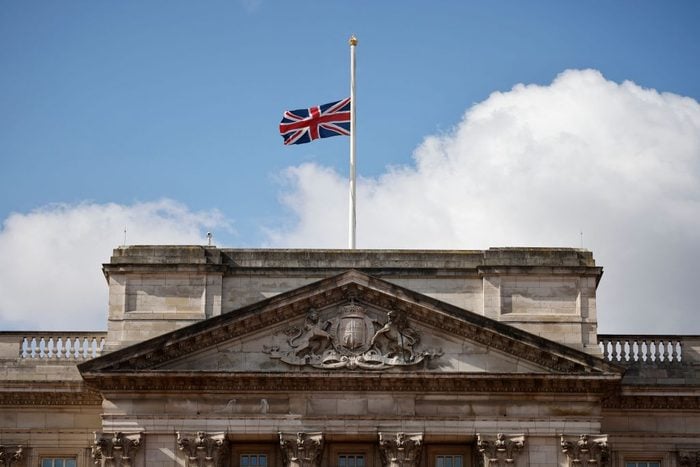
The bells with toll
In London, the ceremonial traditions of the British monarchy will begin. "National flags will be immediately flown at half-mast on all government and civic buildings, such as churches and the Royal Palaces across England, Scotland, Wales, and Northern Ireland," Hughes says. This should happen within ten minutes of the notification of her death, Gullace says. "In the immediate hours following the announcement of the queen's death, official gun salutes will be arranged in London, Edinburgh, Belfast, Cardiff, and other saluting garrison stations,'" Hughes says.
In addition, bells will toll in churches around London. Westminster Abbey's famous tenor bell, rung in the event of royal deaths, will be heard; as on most solemn occasions, Westminster's bells will be muffled. St. Paul's Great Tom will toll as well. Businesses, theaters, and some sporting events may close or be canceled. The nation will enter a period of mourning before the funeral, which Hughes says will likely be ten days. During this period, "full details of the royal funeral will be issued, along with details of a National Minute's Silence," Hughes says.
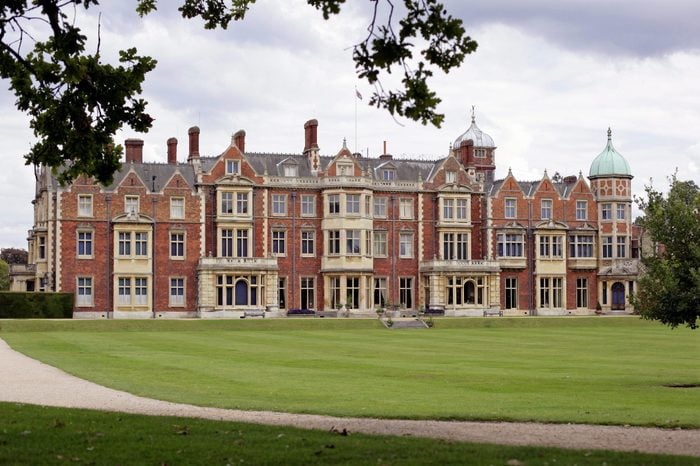
What happens if the queen is not in London
The Guardian reports that if Queen Elizabeth dies while abroad, a plane from the Royal Air Force will send a coffin with royal undertakers to bring her back by air. For those wondering, "What does the Queen of England do?," visiting foreign countries is a big part of the job; but dying abroad is unlikely now, as the queen hasn't traveled outside the UK since visiting Malta in 2015. She was scheduled to visit Northern Ireland— which is part of the UK—in October 2021, but canceled that trip due to health reasons.
So what happens when the Queen dies in England but outside of London, such as at her private estate, Sandringham House in Norfolk, where she traditionally spends Christmas? (In 2021, the Queen remained at Windsor Castle because of the pandemic.) Likely, a royal train will transport her to London. "Following her death, the Queen's coffin will be transported to St. Pancras station, where the cabinet and prime minister will receive the body with Prince Charles," Gullace says. "The body will then return to Buckingham Palace." There, she will be placed in the throne room and watched over by four Grenadier Guards (the ones who wear the big bearskin hats and red coats).
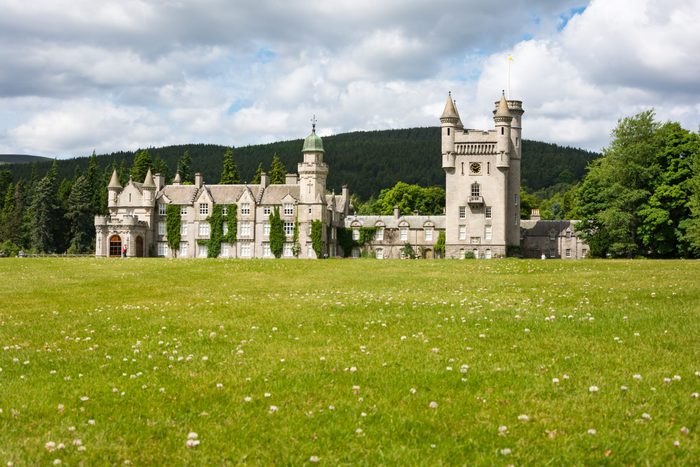
If she is at Balmoral
The most complicated situation will be if the queen passes while at Balmoral Castle in Scotland, where she spends every summer. Scottish rituals would take place after her death: She would be moved to Holyroodhouse in Edinburgh, then be carried up the city's Royal Mile to St. Giles Cathedral for a service before being placed on the royal train to London. Her subjects will likely wait along the route to throw flowers and pay their respects as her train passes by. If it's not possible to transport her by train, her coffin will be transported by plane, with a reception to receive her body when the plane lands in London.
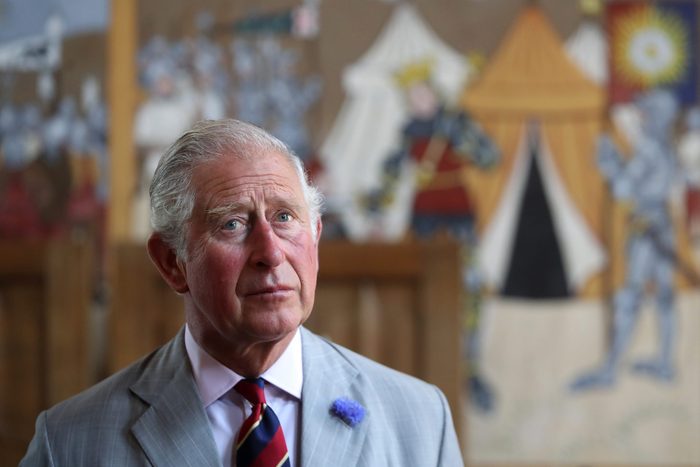
Prince Charles will immediately become king
Although there will be rituals and ceremonies aplenty, Prince Charles doesn't need any of that to actually become king—that happens instantaneously, despite the reasons some British citizens don't want Prince Charles to be king. "The moment the queen dies, Charles becomes the sovereign, a quasi-mystical transformation that is marked ceremonially and legally the next day," Gullace says. "The code name for Charles's accession to the throne is Operation Spring Tide. Once the flags have been lowered and the cannons fired, marking the queen's death, the prime minister will hold his first audience with the new king." To ensure a smooth transition to the new official head of state, all members of parliament will gather to swear allegiance to the king. This was also done hours after young Queen Elizabeth's father, King George VI, died in 1952.
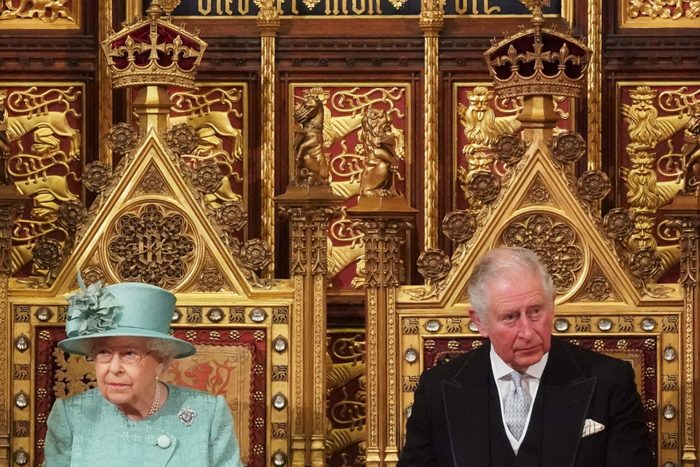
Charles will take the throne
Several rituals will take place to solidify the new monarch's position. "On the evening of the [queen's] death, the new king will address the nation," Hughes says. He will broadcast a televised speech at 6 p.m., which no doubt the entire country will watch. "The next day, 'D-Day + 1' in Palace code, senior government figures will proclaim Charles's accession to the throne at St. James Palace before an assembled crowd of dignitaries," Gullace says.
At 11 a.m., Charles will be proclaimed king, and he will swear an oath called the accession declaration. Heralds will read a proclamation throughout the city, trumpets will sound, the flag will be raised back up, and cannons will go off in a royal salute. The coronation, however, won't happen for months, to allow time for a mourning period and preparation of the ceremony. "Once the queen has been laid to rest, the palace will organize Charles's coronation, which will take place a few months after the funeral," Gullace says. Fans of the Netflix series The Crown will remember the dramatization of Queen Elizabeth's coronation over a year after her father's death, in 1953.
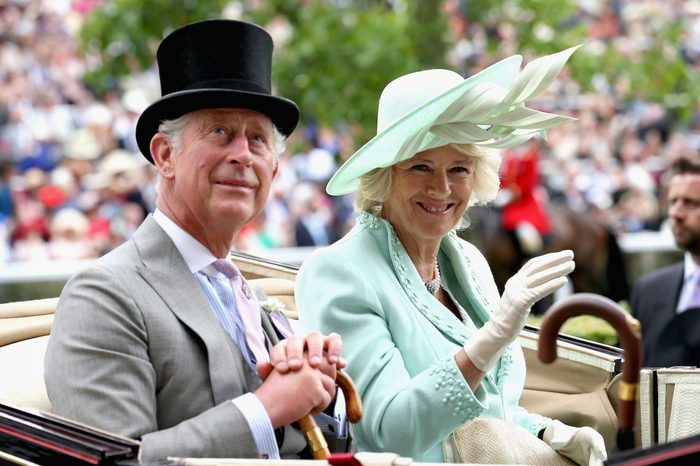
Charles will pick his name
British monarchs are allowed to pick their own ruling name when they take the throne. Queen Elizabeth's father, King George VI, was born Prince Albert and known as "Bertie," but he chose to be King George after his father, King George V. Elizabeth had a far easier choice since her birth name recalls another of England's great queens, Elizabeth I. There had been speculation that Charles would choose a different name—perhaps George after his grandfather or Philip after his father—because the first two King Charleses were associated with the English Civil Wars. But chances are, Prince Charles will keep his given name and become King Charles III. Although there has also been a debate about the title of Camilla Bowles, Prince Charles' wife, Queen Elizabeth publicly stated in February 2022 that she would like Camilla to have the title of Queen Consort.
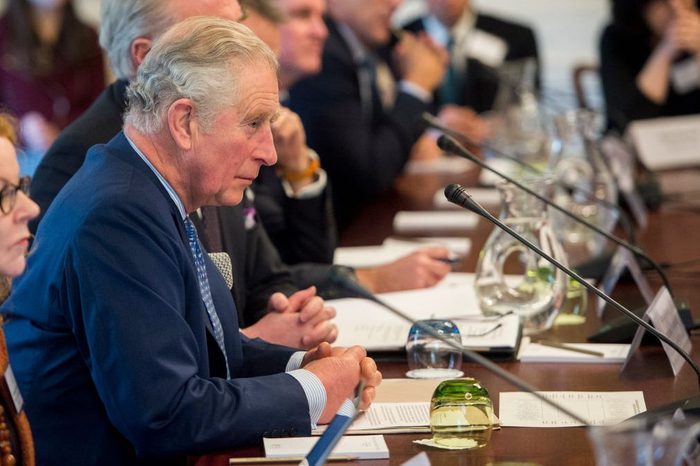
King Charles will tour the home nations
When Prince Charles becomes king, it will be time to get to work, even before his mother's funeral. "After a short period of grieving and official condolences for the family, King Charles will embark on a tour of the UK prior to the funeral, visiting Scotland, Northern Ireland, and Wales," Gullace says. During the tour, he will meet with leaders and attend services, as well as go out and meet the people. It must be a difficult task to do all that while grieving your mother, but Charles has been training for this moment his whole life, so he will no doubt be well-prepared. In addition, going to meet his subjects may do a great deal toward solidifying positive feelings among the public for the new king.
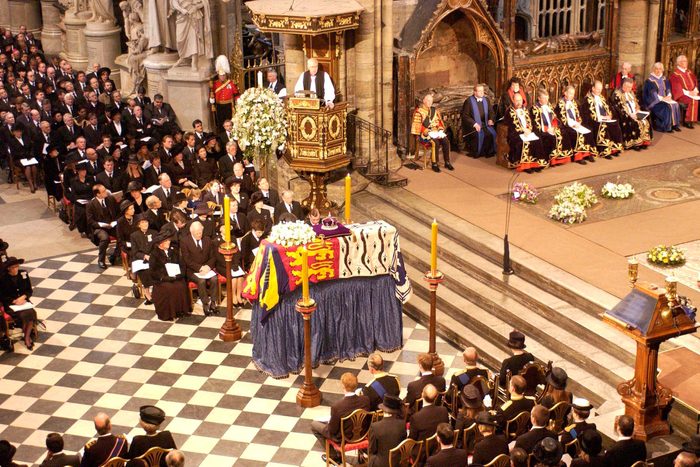
The queen's coffin will be open to the public
Queen Elizabeth will be moved from Buckingham Palace to the Palace of Westminster for "the public viewing of her casket at Westminster Hall, where she will lie in state," Gullace says. "The military procession from Buckingham Palace to Westminster Hall will be lined with thronging crowds wishing her a final farewell. It is likely that the number of mourners paying their respects as she lies in state will be in the hundreds of thousands, with many waiting hours to walk past her coffin." Depending on the exact situation of the pandemic at that time, it's possible that precautions for overcrowding will need to be put in place.
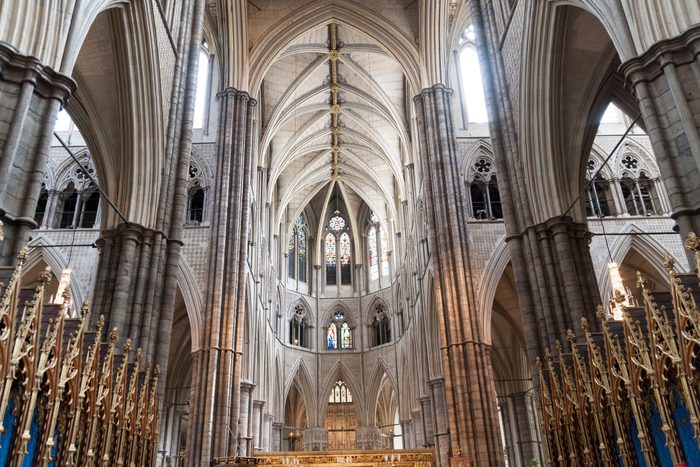
The queen will have a state funeral
"On the tenth day after her death, the queen's body will be moved into Westminster Abbey for an elaborate state funeral, to be attended by dignitaries from throughout the world," Gullace says. Although the pandemic may again complicate matters, the UK currently only requires vaccinated travelers to quarantine until a negative PCR test is obtained, so those traveling from abroad (including Prince Harry and Meghan) would be able to attend. The UK currently has no legal limit on how many people can attend funerals; however, there may still be limits on who will be there, in addition to masking and other precautions in place. For regular people, "the day of the funeral is to be an official Day of Mourning in Britain, and the palace has expressed some anxiety that the crowds will be so great that delays and traffic jams will occur," Gullace says. But it will be left up to employers on whether or not they want to give their employees a day off.
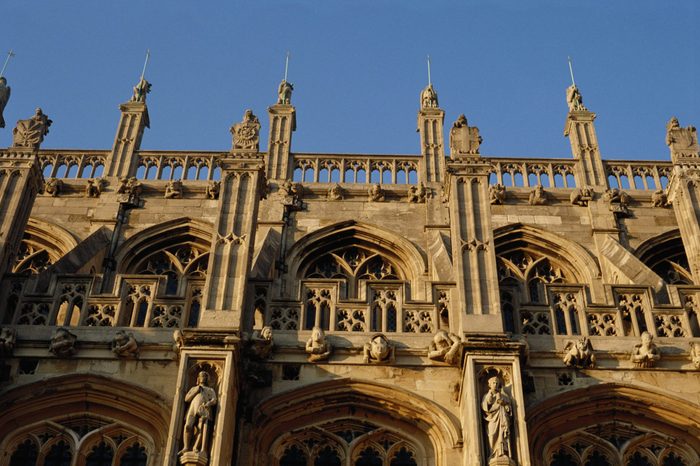
The queen's final resting place
After the funeral at Westminster Abbey, the queen's body will be brought home to Windsor Castle outside of London, where many members of the royal family over the centuries have been buried at St. George's Chapel. The chapel was also the setting for Prince Harry and Meghan Markle's wedding in 2018. "Her final resting place will be beside Prince Philip, whose body will likely be moved with hers to King George VI Memorial Chapel at Windsor Castle, where her father is buried," Gullace says. Philip is currently interred in the chapel's Royal Vault, where some other monarchs and royal family members are buried; the King George VI Memorial Chapel, though, is the burial place of the rest of her family—Queen Elizabeth's father along with her mother and sister, Princess Margaret.
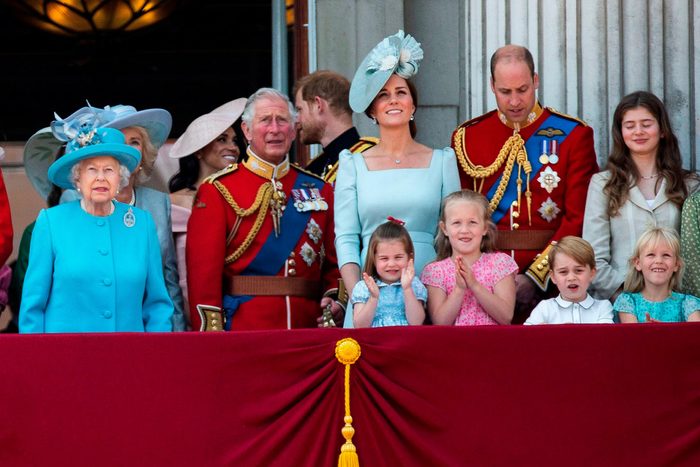
The line of succession will change
After Charles becomes king, William (one of Queen Elizabeth's grandchildren) will move up and take the position of heir apparent. Following Charles's coronation, "William will assume the title Prince of Wales in a separate ceremony that will happen after Charles is crowned," Gullace says. The title Prince of Wales is traditionally given to the next-in-line to the throne. This would make Kate the Princess of Wales, but because this was Diana's title, she may opt for another, out of respect for her late mother-in-law (as has Charles's wife Camilla, who uses her title, the Duchess of Cornwall). The queen's death would put William and Kate's children, Queen Elizabeth's great-grandchildren, at second (George), third (Charlotte), and fourth (Louis) in line to the throne. Prince Harry will remain below them in fifth place.
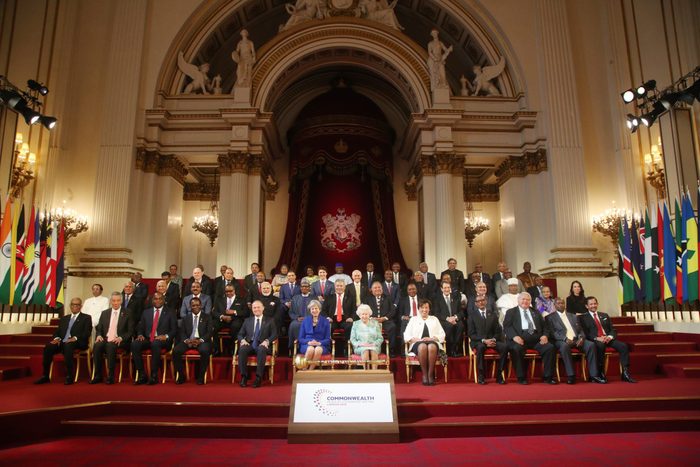
Monarchy will remain, but the Commonwealth is uncertain
Although there is much debate about what happens when the queen dies in terms of the continuation of the monarchy, chances are, everything will stay the same. Despite the rumors, Prince William will never be king before Prince Charles (unless the older prince dies before the queen). But Charles is still likely to have a short reign due to his age, and the monarchy will continue to streamline and modernize as the popular younger generation takes the reins—and the reign. Slightly less clear is what will happen to the Commonwealth, the voluntary association of independent former colonies that accounts for almost a third of the world's population. At a Commonwealth meeting in 2018, the queen asserted it was her "sincere wish" that Charles carry on as head of the Commonwealth. The other government leaders soon agreed, officially announcing to the press that he would take her place when she passes.
Sources:
-
- The Guardian: "'London Bridge is down': the secret plan for the days after the Queen's death"
- Politico: "Britain's plan for when Queen Elizabeth II dies"
Originally Published: February 07, 2022
montgomeryhicharrom.blogspot.com
Source: https://www.rd.com/list/what-will-happen-queen-elizabeth-ii-dies/
ارسال یک نظر for "Age Funny Body Thinks It Died Last Tuesday"